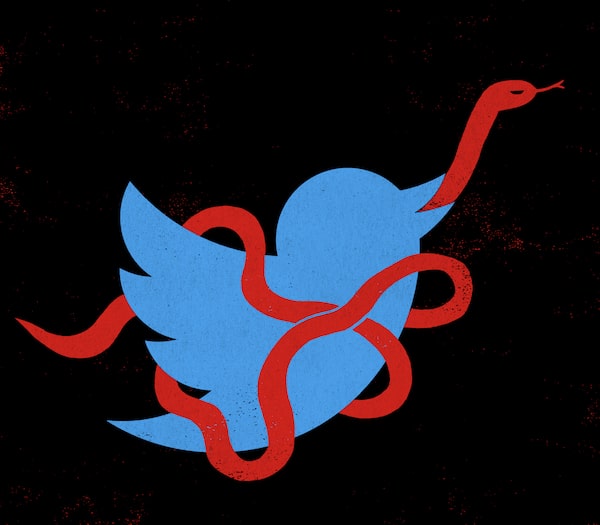
illustration by Hanna Barczyk
While I was working on a magazine story in Manila in 2000, I travelled to the shoe museum housing former Filipino first lady Imelda Marcos’s famous collection in the nearby city of Marikina. Hundreds of pairs of sandals and pumps, many of them made by high-end designers, lined the walls. I was nearly blinded by the sequins.
As a shoe lover, I admired the ambition. As a human being, I felt like throwing up. It had been only 14 years since Imelda and her dictator husband Ferdinand had fled enraged crowds in Manila with their bags of jewels and gold bars engraved “to my husband on our 24th anniversary.” The billions of dollars they’d fleeced from the people of the Philippines preceded them out the door. They left the shoes behind.
It seemed that the Philippines had kicked the Marcoses to the curb for good. So how is it that Imelda and Ferdinand’s son, Ferdinand (Bongbong) Marcos, is now the president-elect of the country his family looted? There are many reasons, but there’s one particularly insidious weapon at the family’s disposal that did not exist in 2000: social media. For years, Marcos supporters have been seeding Facebook and YouTube (and recently TikTok) with a fake alternate history that paints the family in a benign light – not as pillagers, but as saviours.
The key phrase here is “for years.” Social-media companies have long known that their platforms are used to spread conspiracies and manipulate elections and convince vast swaths of people to believe lies. Many companies have tried, with varying degrees of success, to moderate harmful content. The problem is that the harmful content is the super-deluxe manure on these very profitable farms. Or, to switch to a metaphor closer to a techie’s heart: The lies are a feature, not a bug.
This is why it’s so disheartening to see the recent arguments about letting Donald Trump back on Twitter framed as a “free speech” argument. To recap, briefly, for all you sane people who don’t use Twitter: The former president, who used Twitter the way Tony Montana used his automatic rifle in Scarface, was permanently banned from the platform on Jan. 8, 2021. Twitter determined that Mr. Trump’s tweets after the Jan. 6 insurrection at the U.S. Capitol contravened the company’s “glorification of violence” policy.
Elon Musk, who is attempting to buy Twitter, said this week that he thought the decision to permanently ban Mr. Trump was “stupid” and “morally wrong.” We’re led to believe that if he owned Twitter, he’d invite the former president back (although Mr. Trump might prefer to stick with the social-media platform he’s backing, Truth Social, which has yet to set the world on fire).
I actually don’t care if Mr. Trump comes back to Twitter or not. The damage has already been done. He embedded a successful virus in the body politic. He lied continuously about the 2020 election being “stolen.” His December, 2020, tweet calling on his supporters to descend on Washington is considered a prime motivator in the insurrection that sought to hijack an incoming government.
Mr. Musk seems to misunderstand all the underlying issues that led to Mr. Trump being banned in the first place, and the challenges that plague social media in general. It’s horse-and-buggy thinking for a hypersonic world, which is ironic considering that the man wants to colonize space.
“By free speech, I mean that which matches the law. I am against censorship that goes far beyond the law. If people want less free speech, they will ask government to pass laws to that effect.” No, I didn’t crib that from some first-year political-science student’s essay. That’s what Elon Musk wrote on the platform he wants to buy.
I’m not even sure where to start with the questions: Which country’s free-speech laws is he referring to? Would he allow graphically violent content on the platform? Harassment or abuse? Wait, that already exists on Twitter. No need to change policy there! Mr. Musk doesn’t even seem to understand the platform he wants to buy: He thinks it skews to the left politically, while Twitter’s own analytics show that it amplifies more right-wing content.
People who understand how hard it is to keep giant communications platforms from becoming cesspits have expressed concerns about the limitations of Mr. Musk’s simplistic “free speech” framework. As former Twitter board member Jason Goldman put it, “It just reveals a very naive, unserious approach to the content moderation issues he will face.”
There’s a part of me that appreciates Mr. Musk’s chaotic, frat-boy approach to Twitter. He’s an excellent troller. But if you want pranks, take over a frat house – not one of the most influential platforms in the world.
Most people want more calm debate, as Mr. Musk does. That’s a good thing. But the corrosive issue with Twitter, and social media in general, isn’t that people call each other names. It’s that they are giant commercial monopolies operating with almost no oversight. It’s that people’s data are being harvested without their consent. It’s that powerful people have learned how to manipulate other people, and historical facts, in nefarious ways to shape political outcomes around the world.
Nobel Prize-winning Filipino journalist Maria Ressa pointed out that the social-media manipulation preceding the election in the Philippines doesn’t just rewrite the future, it rewrites the past. She has a warning for the rest of the world: “Without facts, you can’t have truth. Without truth, you can’t have trust. Without these, we have no shared space and democracy is a dream.”
Keep your Opinions sharp and informed. Get the Opinion newsletter. Sign up today.